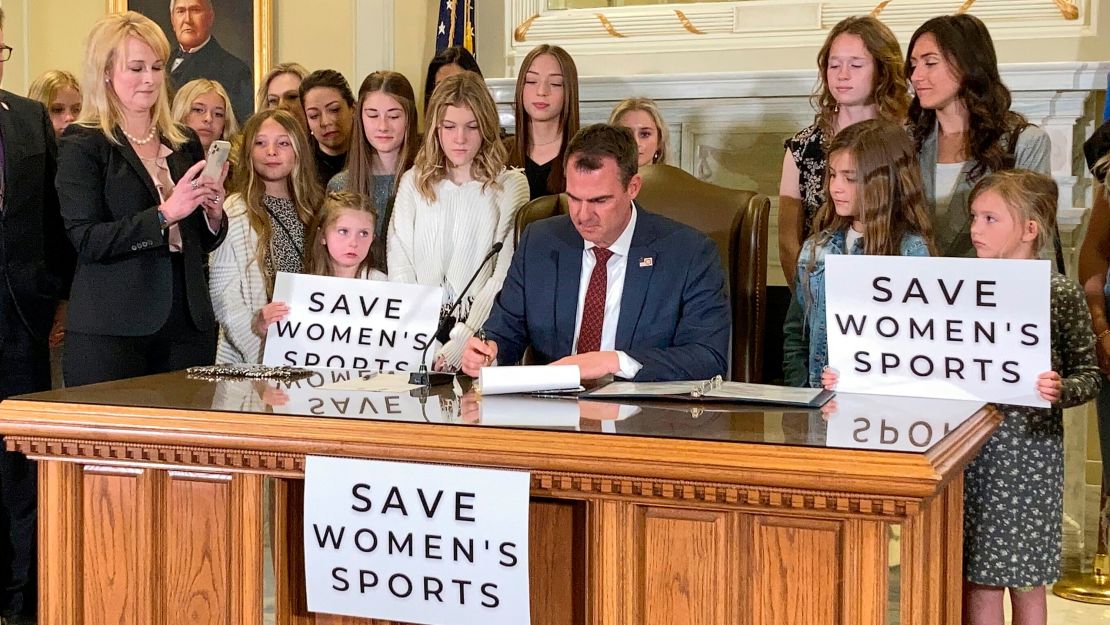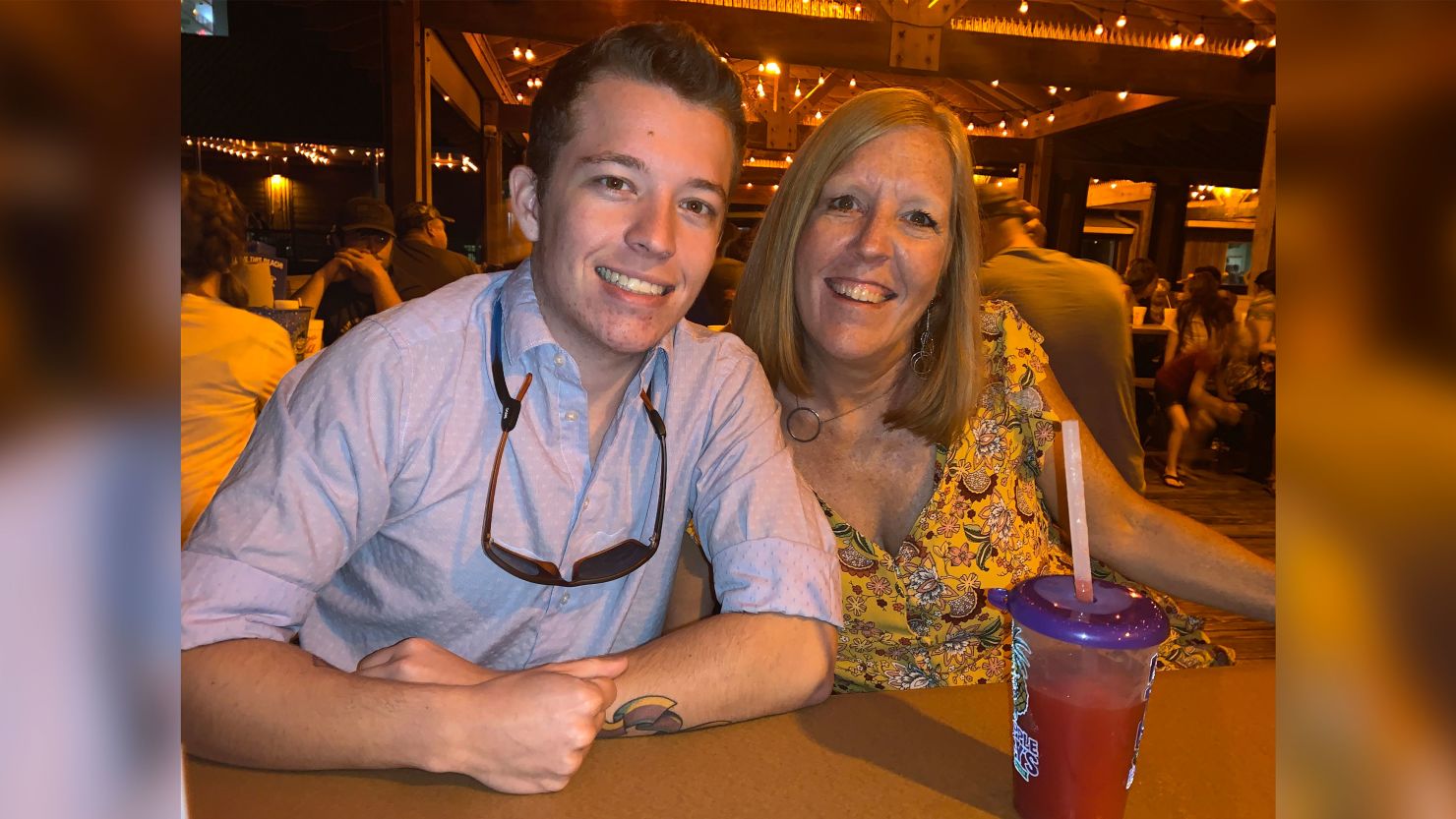Heather Thomas spent months pleading with Tennessee legislators to vote against a ban on gender-affirming health care for minors, which she says saved the life of her transgender son.
“It’s just so important. I mean, it saved his life. Why would I not share that to try to help others not have to go through what we went through?” Thomas told CNN.
Even when many parents in Tennessee became afraid they would become targets of the bill, Thomas continued speaking out. But despite her efforts, including testifying before the state Senate, last week Tennessee became the latest state to ban gender-affirming care for transgender youth and the first state this year to restrict public drag show performances.
Thomas, as well as transgender people and advocates in multiple states, told CNN they are increasingly alarmed about the unprecedented number of measures introduced in state legislatures this year that are seeking to restrict LGBTQ rights and queer life.
“My child doesn’t want to be transgender; he?is?transgender and has been his whole life. So just because he transitioned doesn’t mean he wasn’t trans before. He always has been,” said Thomas, adding that her 23-year-old son Ellis lived with severe depression before starting testosterone treatments as a teenager.
At least 385 bills targeting LGBTQ rights and queer life have been introduced around the country through March 7, according to data compiled by the American Civil Liberties Union. The number of bills has already surpassed last year’s total of 306, according to ACLU data shared with CNN.
The proposed bills cover a wide range of policies, including some that seek to restrict transgender people from competing on sports teams or using bathrooms that align with their gender identity, but it appears youth and medical care is a growing legislative focus.
Youth who identify as transgender make up a tiny fraction of kids in the United States – the US Centers for Disease Control and Prevention estimated in a 2019 study that less than 2% of high school students identify as transgender. Health care professionals have said the types of bills being pushed in this Republican-led effort are likely to further ostracize transgender kids, a group who already struggle with higher rates of depression, anxiety and suicide.
Emerson J. Sykes, an attorney for the ACLU, said each of the issues potentially impacted by the bills are distinct, but are creating a “dramatic chilling effect” even if they don’t become laws.
“The message is loud and clear: LGBTQ people – trans people in particular – are under a microscope and anybody who supports or uplifts or features transgender people or voices of any kind, whether that’s in schools, in libraries, on stages or even just existing in the world, and getting access to health care and recreation and all of those basic things,” Sykes said.
“We are definitely in protection mode and trying to figure out what we could do to protect our neighbors and their rights,” he added.
In Oklahoma, one of the states with the most proposed bills targeting health care for LGBTQ people (15 so far, according to the ACLU), Juno Stump said she is worried about her future as a transgender woman.
Last week, House Bill 2177 advanced to the state Senate after the House passed it 80-18. The measure would ban certain gender-affirming care like puberty blockers, hormones and surgeries for people under 18 years and blocks insurance from covering gender-affirming care for anyone, regardless of age.
Oklahoma Rep. Kevin West, the bill’s sponsor, has said legislation restricting gender-affirming care is about protecting children and “putting a safeguard in place” for them.
“This legislation is about protecting our children from those who would seek to profit from their gender confusion,” West said in a statement following the House vote. “As a state, we must not be partner to irreversible health practices that permanently change the bodies of our children before they are of an age where they can fully understand the consequences of their decisions.”

Under HB 2177, Stump, a 31-year-old freelance writer, says she would no longer be able to use her health insurance to pay for her gender-affirming care. She told CNN it would cost “thousands” to travel to another state and buy her medication without insurance.
When Stump first heard that HB 2177 had advanced to the Senate, she was devastated.
“I broke and fell apart into pieces in my friend’s arms in the middle of the day, and then in my wife’s arms … because it just felt so hopeless,” Stump said. “Because anything I can think of that makes me feel better, is temporary, because it’s like, well, when does this stop? When does this end?”
Stump said she suffered from depression and harmed herself for several years before she started receiving gender-affirming care in 2021. Receiving hormones changed her life, Stump said, because it freed her from having to “mask” by presenting herself as a cis-gendered, heterosexual man.
“Every single time I took a step, every single time I took a breath, every single time I said anything, I had to have this quick little conversation inside my own head … and that conversation was, ‘Is this coming across in a way that is masculine and going to help me pass as a boy?’ Because that’s what I’m being forced to do,” Stump said.
Nicole McAfee, the executive director of LGBTQ advocacy group Freedom Oklahoma, said young LGBTQ people in the state were already feeling the harm and burden of policies targeting them and now, “it’s only getting worse.”
The recent push to restrict gender-affirming care in Oklahoma began last year when Oklahoma Gov. Kevin Stitt signed a law that blocks funding to the University Hospitals Authority if its facilities provide gender-affirming care. At the time, the governor also called on state lawmakers to ban gender-affirming care for minors across the state during the 2023 legislative session.
Last year, Stitt signed laws that require students at public schools to use restrooms and locker rooms that match the sex listed on their birth certificates, banned transgender women and girls from competing on sports teams consistent with their gender identity and banned nonbinary gender markers on birth certificates.

Stitt has argued these laws are for the benefit of children, calling out gender-affirming health care in his 2023 state of the state address: “We must protect our most vulnerable - our children.” In banning funding for such health care for minors at the Oklahoma Children’s Hospital, the governor said it was “wildly inappropriate for taxpayer dollars to be used” for these procedures.
McAfee says the chilling effect of bills like HB 2177 would impact more than just transgender people. Some providers would be worried about being criminalized or being impacted by civil liability for providing care, they said.
“That means we’re going to lose doctors, we’re going to lose pediatricians, all who treat all children, not just children who are transgender. And in a state like Oklahoma, where we already have a really fractured health care system, adults and kids of all genders are going to suffer because of this legislation,” McAfee said.
Stump, Thomas and other advocates told CNN they were astonished and disappointed that more people outside the LGTBQ community are not alarmed by what lawmakers are doing or encouraged to act against the growing wave of bills against them.
“I really wish that more people cared … at least for self-preservation,” Stump said, “Because right now I’m on the chopping block, but, people in power aren’t gonna get rid of me and then all of a sudden start trying to fix roads and fix health care and, you know, fix the cost of food – they’re just gonna look for the next person,” Stump said.
CNN’s Lucy Kafanov contributed to this report.





